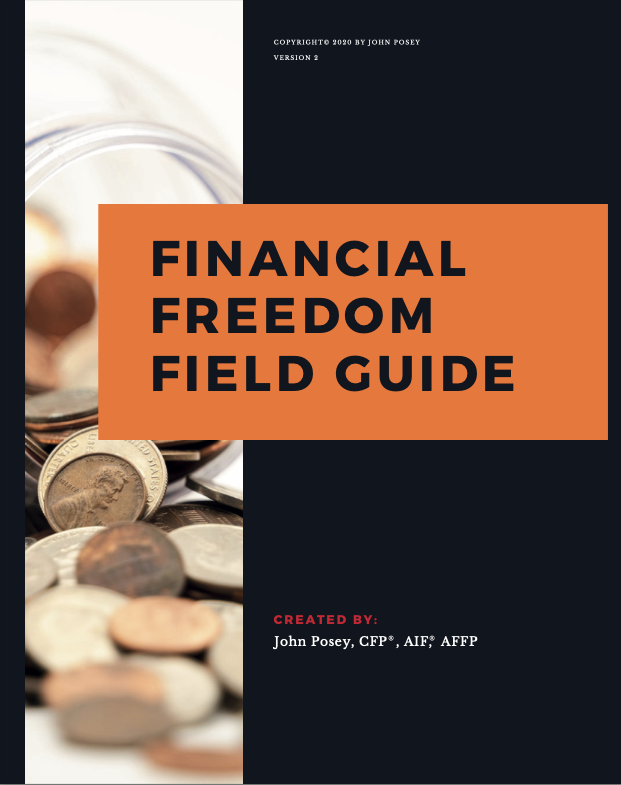Do you know if the title “financial advisor” requires a certain license or level of education? Unfortunately, it doesn’t – anyone can call themselves a financial advisor, unlike other professionals. For example, a psychologist or doctor cannot legally hold themselves out as such without meeting specific requirements which are often already recognized by the public like having a Doctorate or Master’s degree in their respective field. I believe this is why it has been difficult for consumers to tell different types of “advisors” apart in financial services. Generally, a financial advisor is either an investment advisor representative or a registered representative (i.e. – stockbroker or simply ‘broker’) or perhaps dually registered as both. In short, investment advisors are compensated on a fee basis (often a percentage of investment assets or flat fee) and brokers receive commissions. Investment advisors have a legal obligation to act in your best interest known as the fiduciary standard. Brokers have historically operated under a less rigorous, suitability standard, however Regulation Best Interest enacted in 2020 has attempted to elevate the standard, yet falls short of the fiduciary standard. Investment advisors must have one of the following: Series 65 license, Series 66 & 7 licenses combined, or hold a professional designation such as the CFP, CFA, or ChFC in most states. Brokers must hold a Series 7 license. Investment advisor representatives provide services through a registered investment advisory firm and brokers provide services through a broker-dealer (i.e. – brokerage firm).
Now I can probably guess what kind of advisor you want working for you. Many are surprised to learn that an advisor may not have been legally obligated to act in your best interest, particularly with less robust broker requirements prior to year 2020. I do believe good, competent advisors are going to strive to provide best interest advice regardless of which method they choose to provide investment services but it still sounds ridiculous that in ‘your best interest’ hasn’t been a universal standard when receiving advice, doesn’t it? It’s been a hotly contested topic among big brokerage companies and investment advisors in recent years. XY Planning Network, an organization of independent investment advisors, formally filed a lawsuit in 2019 against the SEC and more recently petitioned the SEC in efforts to more clearly define and separate brokerage sales from investment advice. You can read more on that at kitces.com. Much ambiguity has risen from trying to assess whether an advisor is acting as a broker or an investment advisor, particularly when individuals are dually registered as both given differences in rules and exemptions to the rules. I’m all for getting clear and concise regulations that we can all easily understand. There’s much work to be done yet for the financial advice business to reach respected profession ranks such as doctors, lawyers, and accountants.
You also might expect that someone that considers themselves a financial advisor and is licensed as described above would understand the difference between a broker and an investment advisor. I regret to report that even some employed and licensed in the business don’t understand it. Now can you imagine if someone in the investment business doesn’t get it, how do we expect much of the investing general public ever would? To illustrate the point, I ran into a financial advisor that works for a national investment firm you’ve likely heard of and this individual has been a financial advisor for more than 20 plus years. This advisor asked me, “Hey, aren’t you in the investment business?” I said yes and explained that I run an investment advisor firm. The next question was, “So are you Series 24 licensed then?” A Series 24 license refers to a Securities Principal (i.e. – compliance officer or securities supervisor) for a broker-dealer – referring to broker activity/Series 7 licensed folks. I said no and that I am not a broker any longer, only an investment advisor. Their response was something to the effect of, “I just don’t get that…” and seemed to insinuate that it either wasn’t right or fair that I wasn’t Series 24 licensed. Now being the even-keeled professional I strive to be, I didn’t engage in a debate but I’ll do that now given there will be no victims or victors.
It would appear the advisor mentioned didn’t truly understand the differences between an investment advisor and a broker and the corresponding regulations given their dissatisfaction with my lack of a Series 24 license. Now, this is where the story gets more interesting. I used FINRA’s BrokerCheck to search this person’s background out of curiosity (You can use this website to perform due diligence on advisors as it shows their employment history, licenses, and any disclosure events) and discovered the individual is licensed as both a broker and investment advisor, dually registered as I suspected. Now here’s someone dually registered with many years in the business and all signs indicate a lack of understanding of the difference between broker business and investment advisor business. But the most interesting part of the story is that this person was also licensed as a Series 24 Securities Principal! – the very license they expected me to have??!! They essentially held the qualifications to be a compliance officer for a broker-dealer in addition to being an investment advisor and broker. Mind you, compliance officers often are expected to provide regulatory guidance to others. If anyone should have been familiar with the distinctions we’re talking about, I would expect it to be this person. This is an egregious example that candidly illustrates how convoluted financial regulations have become in the investment business and the need for simple and clear rules. The regulations should serve consumers and advisors alike so everyone can clearly understand the obligations and the difference. I’m hopeful XY Planning Network’s efforts will help reduce the fuzziness to the benefit of everyone. With tremendous respect and appreciation, I thank Michael Kitces and Alan Moore for championing this movement and their unwavering commitment to the investment advice industry.
Every company I worked for before launching Plains Advisory (a registered investment advisor firm in the state of Nebraska) expected me to be dually registered so that I could offer both commission and fee-based investment solutions. As you can probably imagine, there are some inherent conflicts of interest in commission-based investment solutions such as offering products that may pay higher commissions than others to name one. Many who provide investment advice have moved away from the broker-dealer, commission-based approach given the potential conflicts and regulatory hurdles and I am no exception. In conclusion, I think it’s worth determining if an advisor is a broker, an investment advisor, or both as it can give you some better context for the advice and solutions you may be presented with. Seeking out advisors with recognized professional credentials like the CFP® – CERTIFIED FINANCIAL PLANNERTM designation is generally a good starting point. You can find CFPs through the Financial Planning Association at plannersearch.org or CFP Board website at letsmakeaplan.org. In the end, the most important consideration is trust.
Advisory services offered through Plains Advisory LLC, an investment adviser registered with the State of Nebraska. Insurance products and services are offered and sold separately through John Posey, a licensed insurance agent. No investment strategy can guarantee a profit or protect against loss in periods of declining values. Opinions expressed are subject to change without notice and are not intended as investment advice or to predict future performance. Past performance does not guarantee future results. Any information provided is designed to provide general information on the subjects covered, it is not, however, intended to provide specific legal, tax, financial or investing advice and cannot be used to avoid tax penalties or to promote, market, or recommend any plan or arrangement. Material presented is believed to be from reliable sources and no representations are made by our firm as to another parties’ informational accuracy or completeness. All information or ideas provided should be discussed in detail with an advisor, accountant or legal counsel prior to implementation.


